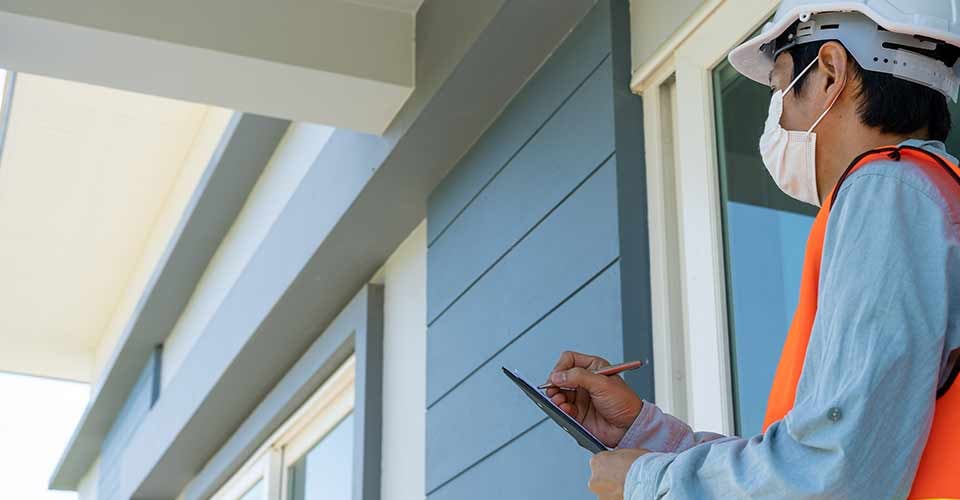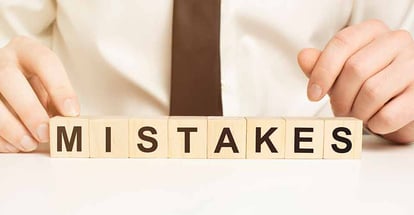The Importance of Home Inspections
As a home buyer, you need to be fully aware of everything regarding home inspections before you purchase your dream home. This knowledge is vital such that it can help you prepare for any eventualities.
Also, you may find it easy to budget for what may need to be fixed in your new home. Most importantly, you will be in a better position to make a sound decision on whether to rescind a given offer or not.
Bear in mind that the competitive housing market has compelled some buyers to overlook the need for home inspections more than how it used to be a while back.
While this move can provide a competitive edge when closing a deal on a property/home, waiving home inspections can reveal serious weaknesses and major hazards in your home in the future. Consequently, your home value will drop drastically.
So, do you think it is necessary to consider a home inspection in the first place? Read on to learn more about why you need to perform home inspections, what it covers, and its importance.
Home Inspection Explained
During your home inspection, you may need the services of a professional home inspector. When you hire professional home inspectors, you should look forward to a thorough job.
These professionals review your home’s most important components like its roof, structure, electrical system, and air conditioning/furnace.
This task should always come just before you make up your mind to buy the property that is to be inspected. The good news is that the inspection process takes a few hours to complete. This means that you should spare a few hours to be part of this important exercise.
The inspection of your home may take place just as the seller agrees with you on the offer provided and before closing. For that reason, you will most likely schedule the home inspection exercise directly after you have signed the purchase agreement.
This particular type of document provides enough time for your hired inspector to access every part of your home and write a report before the agreed closing date.
In addition to that, an early initial home inspection can make it easier for you to set up a day and time for a follow-up inspection (if necessary). As a home buyer, you will schedule and take care of all home inspection insurance.
This is ideal given that you expect your hired home inspector to assess the property and provide valuable information that may determine the outcome of the pre-closing negotiations of a home you are looking to buy.
The Need for a Home Inspection
According to a Redfin report, around 20% of winning offers had waived their home inspection contingency in the month of June 2020. This was a 13% increase from the previous year (2019).
Typically, home inspections cost between $300 and $400. If there are major issues within your home you will easily become aware of them through inspection before closing the deal with the prospecting buyers.
The inspection contingency may come in handy when your home inspection shows some serious issues. Some of these problems may cause you (the potential home buyer) to back off or renegotiate the offer at hand.
It is up to you to decide whether to overlook the need for a home inspection or not. Keep in mind that skipping the home inspection can cost you a few dollars to enlist a third party or a neutral professional to assess it. It will also cost you more money to fix the problems you may have previously missed.
Home Inspection Versus Appraisal
Before you settle the payment for a property you want to purchase, you must hire a professional inspector to perform a thorough review and assessment of the condition of your future home. On the other hand, your lender will go the extra mile to hire an appraiser.
In this regard, the appraiser will provide an estimation of the actual value of the property. The appraiser will also carry out a comparative analysis of the property and the likely sale price of the home you want to purchase.
In any case, if you are relying on a Federal Housing Administration (FHA) loan to buy the home, the appraisal may include an inspection.
As far as the United States Department of Housing & Urban Development (HUD) is concerned, the appraisers need to identify issues that involve safety and health. The HUD will also put your loan applications on hold until the property owner/seller resolves the problem.
In this sense, HUD may strongly encourage potential homeowners using the FHA loan to initiate and conduct their own property inspections.
Home Inspector Hiring Process
If you want your home to be inspected, you must look for an experienced, knowledgeable, and professional home inspector. Check with several real estate agents, family members, or friends to find the most suitable inspector.
Also, you may consider referrals from homeowners who have at one time worked with professional home inspectors to get someone that will inspect your expectations or even better.
Last but not least, search online but take your time to go through online reviews and ratings regarding some home inspectors.
If need be, turn to the American Society of Home Inspectors (ASHI) or the International Association of Certified Home Inspectors (InterNACHI) and use their Find An Inspector tool. These two associations have websites where you can search and double-check on referrals from other homeowners.
Bear in mind that these websites have certification programs as well as a code of ethics designed for members. So, whatever information you come across on any of these sites is verified and correct.
Likewise, you may keep in touch with the Better Business Bureau’s (BBB) site to find out if there are formal complaints or concerns about the home inspectors you are about to hire.
Most states regulate their homeowner inspection industry in addition to setting inspector requirements. Once you find the most qualified home inspectors, there are questions you need to ask them.
These questions will give you some clarity and confidence about the inspectors you are about to assign the task of inspecting your future home.
Here are the questions you may ask the inspectors directly or through a company that has several inspectors under contract or on staff:
-
What inspection process are you going to follow?
-
How soon should the inspection exercise be scheduled?
-
How soon should the inspection report be expected?
-
How should the report reach me? Through the email, physical delivery, or should I pick it up from the office?
-
What is the real home inspector’s name?
-
What is the inspector’s expertise?
-
Could you provide more information and references on your inspectors/company?
-
Does the team of your home inspectors have particular knowledge and experience in the residential home inspection?
-
Which parts of the home will the inspection cover?
-
How long should the inspection process last?
-
Can a potential homeowner witness the home inspection process?
-
How much is the total cost of the inspection process?
- How much does an inspector cost?
As stated earlier, a home inspection process may cost you around $300 and $500. This price range is quite reasonable given that you are hiring an experienced and certified professional to help you establish the conditions of the home you want to purchase.
Of course, the certified home inspector will undoubtedly take a short time to thoroughly assess and review a property before issuing a detailed and well-explained report at the right time.
In this case scenario, you will be required to pay for your home inspection before or during the inspection process.
The cost may vary significantly or be a little bit higher than the usual average if the property under inspection is more than 2,000 square feet.
Sometimes it is wise to compare prices between two or several inspection companies or individual home inspectors before you choose the most appropriate one. In advanced cases, you may consider specialty inspections regarding pests, molds, radon, and lead.
Just know it is always possible to find inspectors that can perform a general home inspection on top of conducting specialty inspections.
However, make sure to hire experienced and certified home inspectors to be sure of receiving satisfactory reports of the property you want to acquire.

Why Should You Get An Unbiased Home Inspector?
Some homebuyers find it convenient to hire a home inspector that is well known to them. This, to them, means saving money. At times, real estate agents will recommend a home inspector from an approved list.
This might seem convenient for you because you do not have to struggle to look for one. Nonetheless, both scenarios will leave you with a biased inspector.
One of the main things when hiring a home inspector is that he/she should be unbiased. He/she should have no vested interests or conflict of interest on the property to be inspected.
If an inspector has any interest in the sale of a property, there are chances that he/she will give you a positive inspection report to guarantee a quick sale or a commission from a real estate agent.
On the other hand, a biased inspector can give you a negative report to make you abandon the property in favor of someone else offering a commission or other reward.
This leaves you, the buyer, disadvantaged with issues in the home that will cost so much to fix or cause your property to be condemned. Alternatively, you might abandon a property that suits your needs.
A few states ban real estate agents from recommending inspectors to ensure homebuyers get an unbiased report.
If you get a recommendation of home inspectors from your real estate agent, this should be a list of all those licensed by your state’s Board of Home Inspectors rather than a narrowed list of a few inspectors.
If you get referrals from people, settle for those who have no stake in your real estate transaction to avoid a conflict of interest.
You should protect your interests in home buying. To do this, ensure you always get an unbiased home inspection report outlining any potential problems in a property.
What Your Home Inspection Entails
Your hired home inspectors will take time to go through all details of the property during the home inspection process. From the roof to the basement all the way to different rooms and sections of the property, this professional will cover every section.
Remember, the inspection aims at providing the real value of the property. Therefore, the home inspector will conduct an inspection based on these main categories:
-
The overall structure of the property including its foundation
-
Electricity and plumbing system to ensure everything is working according to plan
-
HVAC including furnace, air conditioner, and other related equipment
-
Kitchen inspection including appliances
-
Roof, windows, and gutters
-
Exteriors such as porches, driveways, and other spaces around the property
- Attic to find signs of leaks and mold.
Home Inspection Report
Home inspection reports are usually completed within a few days of the property inspection. The report is then sent to you in the form of a PDF or via an online portal.
You may attend the home inspection exercise and talk to the assigned inspector. In this regard, the inspection report will consist of a few major surprises.
It is a good idea to read some of the issues in the report rather than being told by the inspector. The report will certainly give you a valuable piece of information that you can discuss with your attorney, real estate agent, and probably the seller.
Defects that you are likely to read in the report include:
-
Mold - Signs of mold and mildew are a major concern to the homebuyer. Minor issues regarding the mold might be fixed quickly. But more extensive problems may involve major repair and cleanup.
-
Leaks - Most leaks are caused by faulty plumbing and foundation cracks. A sign of active or recent leaks can be a bad sign for a newly built home. It often takes a lot of time and financial resources to locate and fix the leaks. In most cases, these leak repairs might involve new windows, a quick foundation repair, gutters, a new roof, and a complete overhaul of the entire plumbing system.
- Electrical problems - The reliability and availability of electrical power have helped transform homes into gaming centers and offices among other important things. As such, an old or faulty electrical system can be a major problem around your home as it may cause serious problems at any given time. With proper inspection, the home inspector can quickly identify a faulty electrical system, and have it repaired at the right time just before you move into your new home.
The Next Steps After A Home Inspection
Once you are done reviewing the home inspection report, your next move should be to discuss it thoroughly with your lawyer or real estate agent. So, during the discussion of the report, you will have to:
-
Prioritize - Give priority to every major problem pointed out in the report. Pay attention to the most important issues in the report. Most significantly, focus on what you would like from your seller.
-
Estimate - Do some math and find out how much you would want to get from the seller. Just before your property representative gets in touch with the seller, find out how much it will cost you to repair a crack on a foundation or control the mold outbreak from the property.
- Compromise - Make a quick decision on what you would like to live with. Ask yourself if the repairs need to be done before or after you move in. If your seller takes up the responsibility of making repairs, then you will have to work hand-in-hand with your real estate agent to ensure there is a quick follow-up after the inspection.
What should you do if the seller completely ignores your concerns? If your seller turns down your request to fix major issues within the property or pay for repairs, you might consider backing out of the home purchase contract. But ensure you have a well-defined contingency in place before you take this affirmative action.
If you happen to negotiate with your seller on the most crucial repairs before moving in, the home inspection report may provide proper guidance on the repairs and fixes you need to make in your new home.
Other Reasons Why You Should Consider Home Inspection
Once you decide to buy a home, the inspection process of near-endless check writing will start as soon as possible. The process involves too many necessary costs that include the lawyer and realtor fees.
Below are additional reasons why a home inspection is recommended:
-
A quality home inspection provides important information about the actual condition of a home/property and its system.
-
A thorough home inspection can help detect safety problems such as carbon monoxide, mold, and asbestos exposure which can increase Mesothelioma risk.
-
A good home inspection can provide more information about the condition of the rooms in the house, the basement (if there is any), and altered garages including all other illegal installations and additions.
-
A proper home inspection ensures maximum protection of your newly acquired property for a very long time.
-
A well-drafted home inspection report can serve as an effective negotiating tool during the purchase of the property.
-
A professionally done home inspection can provide an approximation of the installation age of a given major system in the home such as heating, cooling, and plumbing.
-
A home inspection can help you identify how much additional effort or money you are willing to spend to improve the condition of your new home.
-
Home inspectors’ report shows you ways to protect your investment
-
The use of home inspection can help reveal what may turn out to be the biggest purchase you ever made.
- A home inspection gives insurance companies an easy time when insuring your property.
Final Thought
An effective home inspection process requires you to work with a professional, experienced, and third-party reviewer. The reviewer or inspector will assess and provide a detailed report of the conditions of the house you are about to purchase.
Even though you may feel disappointed to find out that the home you want to move in is in a bad state, it is prudent that you confirm its condition prior to finalizing the purchase.
A home inspection will most likely help you find out if the property you are about to purchase will give you value for your money or not.
So, always work with an honest and experienced home inspector when buying a new home to avoid future disappointments in your newly acquired property.
With over 50 years of mortgage industry experience, we are here to help you achieve the American dream of owning a home. We strive to provide the best education before, during, and after you buy a home. Our advice is based on experience with Phil Ganz and Team closing over One billion dollars and helping countless families.

About Author - Phil Ganz
Phil Ganz has over 20+ years of experience in the residential financing space. With over a billion dollars of funded loans, Phil helps homebuyers configure the perfect mortgage plan. Whether it's your first home, a complex multiple-property purchase, or anything in between, Phil has the experience to help you achieve your goals.


 By
By  Edited by
Edited by 






